- June 2, 2025
-
-
Loading

Loading
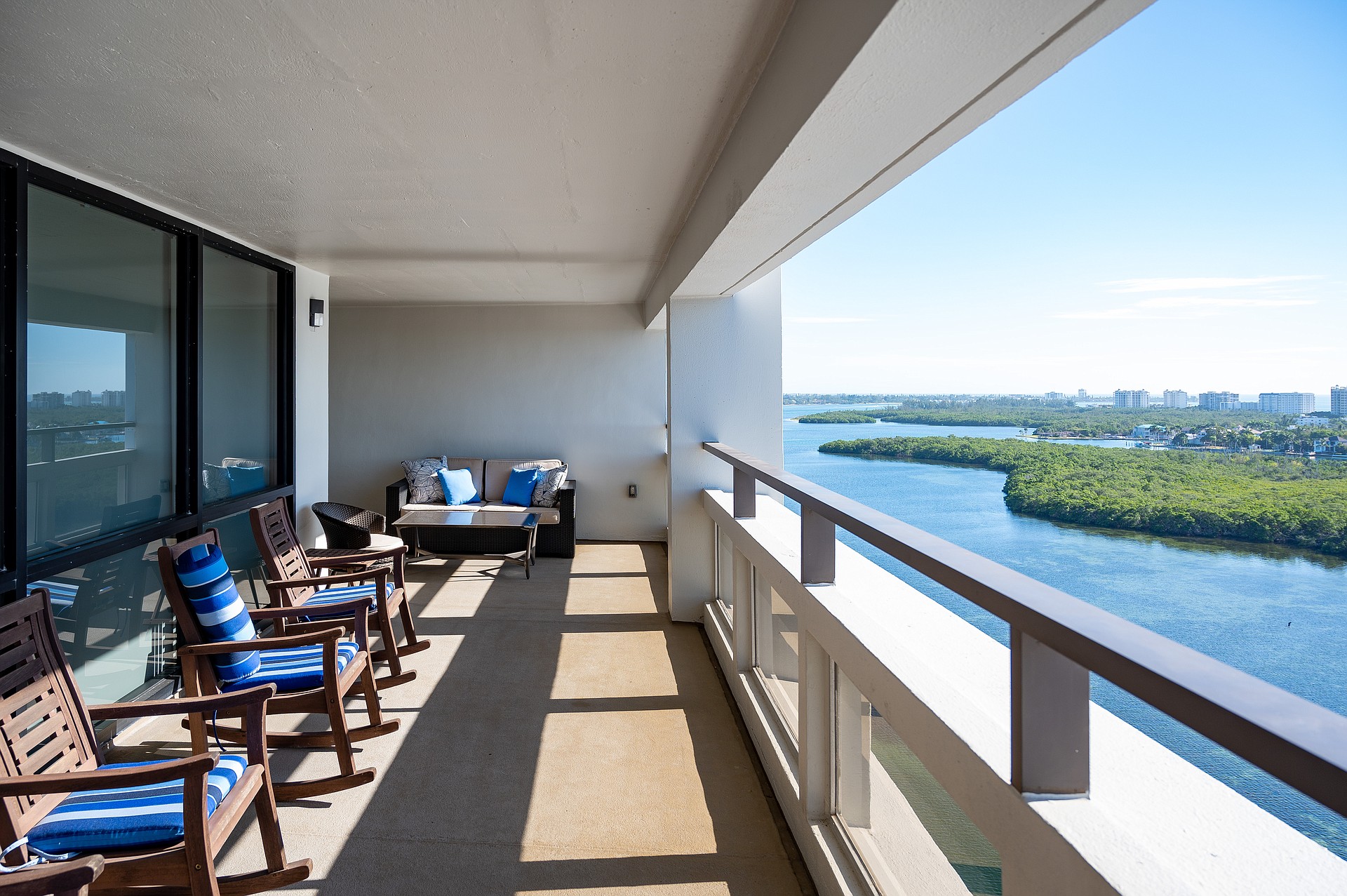
Take just one step into the capacious lobby of Plymouth Harbor on Sarasota Bay and your eye will be drawn to the rear of the room where floor-to-ceiling windows offer a lovely view of blue-green water. Now imagine someone continuing on the tour, past the roomy Mayflower restaurant, with more stunning water views, a state-of-the-art fitness center, and tastefully appointed hallways and common areas. You can just hear them saying, “I could get used to this.”
Our imaginary person or couple had better not dawdle, though. There’s a long waiting list. And this person had better have a fat nest egg or some serious passive income. The entrance fees and monthly charges are not cheap.
Plymouth Harbor’s resident population brims with people who’ve enjoyed distinguished careers in business, medicine, law, academia and, especially, the arts. Many, if not most, are avid community volunteers, and they enjoy a vibrant social life inside and outside the property. “They come for the location and the views, they stay for the people,” says CEO Jeff Weatherhead.
And once you check in, you can stay for the remainder of your days. In addition to independent living, Plymouth Harbor has residences and facilities for assisted living, memory care and more. Those places have great views, too.
Anyone fortunate enough to reside in Plymouth Harbor is buying into a significant piece of local history. The complex was the brainchild of the Rev. John MacNeil, a Massachusetts native who took over as pastor of Sarasota’s fledgling First Congregational United Church of Christ in 1957. He quickly threw himself into civic life. The clergyman hatched the idea and played a major role in the founding of New College of Sarasota. Establishing a retirement community was next on his to-do list. In 1961, the Plymouth Harbor Board of Trustees was born, with a vision of building a nice place where low- and middle-income people could retire.
MacNeil and his cohorts arranged to purchase and rezone Coon Key, between Bird and St. Armands keys, and then managed to push through a plan for a 25-story tower that dwarfed the city’s existing 35-foot height limit. They enlisted two prominent local architects who designed a structure not previously dreamed of in Sarasota. Total cost: $5 million.
The groundbreaking took place on July 4, 1964, and the first denizens arrived in January 1966. After the tower was built, enough locals complained about quaint Sarasota going the way of Miami that the city commission passed a height restriction limiting buildings downtown to 18 stories, ensuring that the tower will always be among the tallest buildings in town.
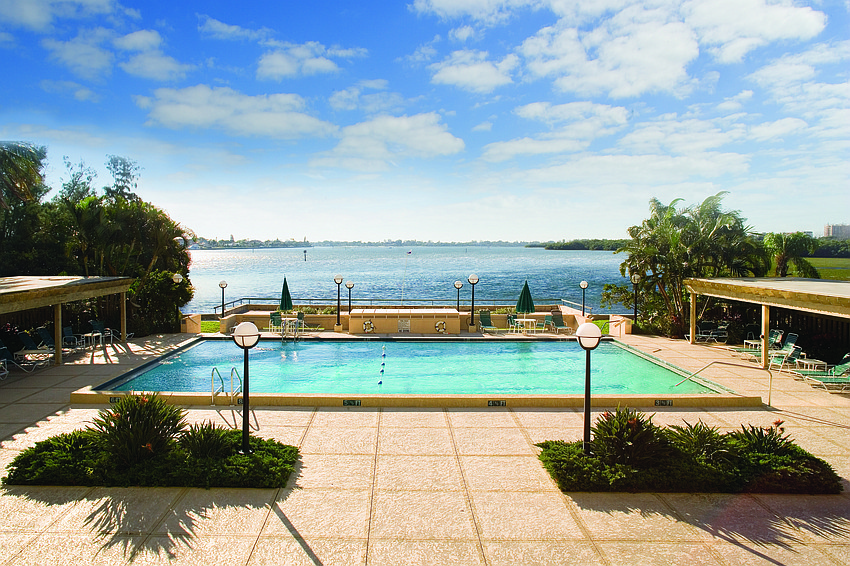
Initially, Plymouth Harbor consisted of mostly small studio apartments. By the late 1980s, with the nonprofit facility in iffy financial straits, that concept was no longer sustainable. So, the braintrust shifted its focus to a more upscale clientele and reconfigured the interior to include larger living spaces. “It’s what the market wanted,” Weatherhead says. “We didn’t leave the lower-income market; it left us.”
Meet four of Plymouth Harbor’s more active and esteemed residents. Their stories will illustrate why the facility is one of the region’s most desired addresses for retirees.
Judy Liersch’s paisley blouse, red lipstick and high-wattage smile reflect her personality. Vibrant, colorful, quick with a laugh, snappy with a quip. Asked if she has any sage advice about aging, she says, “Don’t fall. It really screws things up.”
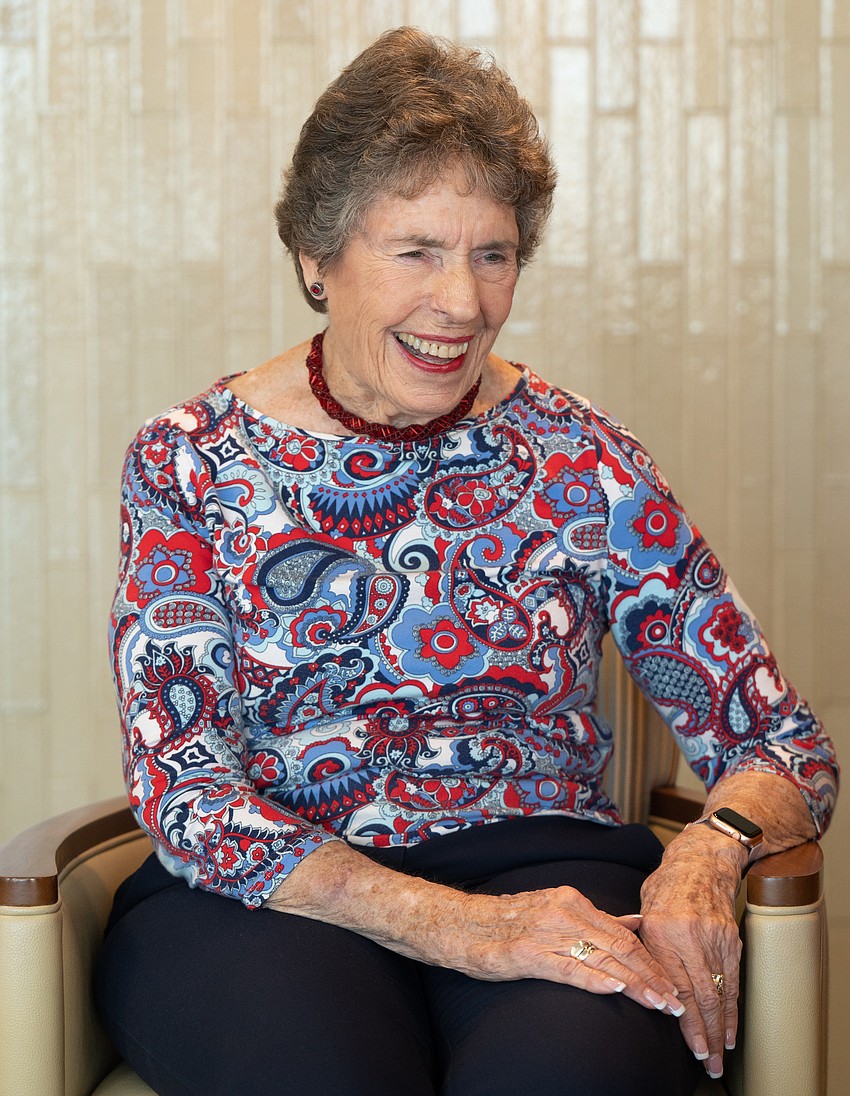
Liersch and her husband, Allen Jennings, left their home in Nokomis to live in a “wonderful corner apartment with a balcony” on the ninth floor of the tower. Her face saddens slightly as she tells me that Allen had to move into the memory care wing. “It’s hard,” she says. “But it’s seven minutes from my apartment — in a covered passageway.” She now resides in a smaller apartment on the 16th floor.
Liersch grew up in Montreal and attended Cornell University, where she majored in cultural anthropology. That set the stage for a life that took her to a variety of places and included an array of jobs. She programmed first-generation computers for IBM in New York City. Taught second grade at a boarding school in Kobe, Japan. Earned a master’s degree from the Stanford Graduate School of Business. Worked for five different federal agencies in Washington, D.C. Had a management position at the National Laboratory in Los Alamos, New Mexico. It was there that she met Allen. They married in 1988, when Liersch was 52.
She has never regarded her retirement residence as a cocoon. “I have a rich life inside Plymouth Harbor,” she says, “and I have a rich life outside Plymouth Harbor.”
Liersch gets around town in the BMW that she and Allen bought in 2015. She attends the opera and orchestra and sits on the board and serves on two committees for the Library Foundation for Sarasota County, which supports and advocates for public libraries. Not long ago, she joined a Plymouth Harbor bridge club, “much against my better judgment,” Judy says. “I’m not very good, but I’m having fun with it.”
Before moving to Plymouth Harbor, Roy Truby and his wife, Golden Clifton, lived in a condominium in downtown Sarasota. “We didn’t know the people next door,” he says with a little shake of his head. That’s not been a problem at Plymouth Harbor. The couple has plenty of friends, and you can see how folks are drawn to Truby. He stands about 6-foot-2 and routinely flashes a radiant grin. For our interview, he’s nattily dressed in a pastel-checked shirt.
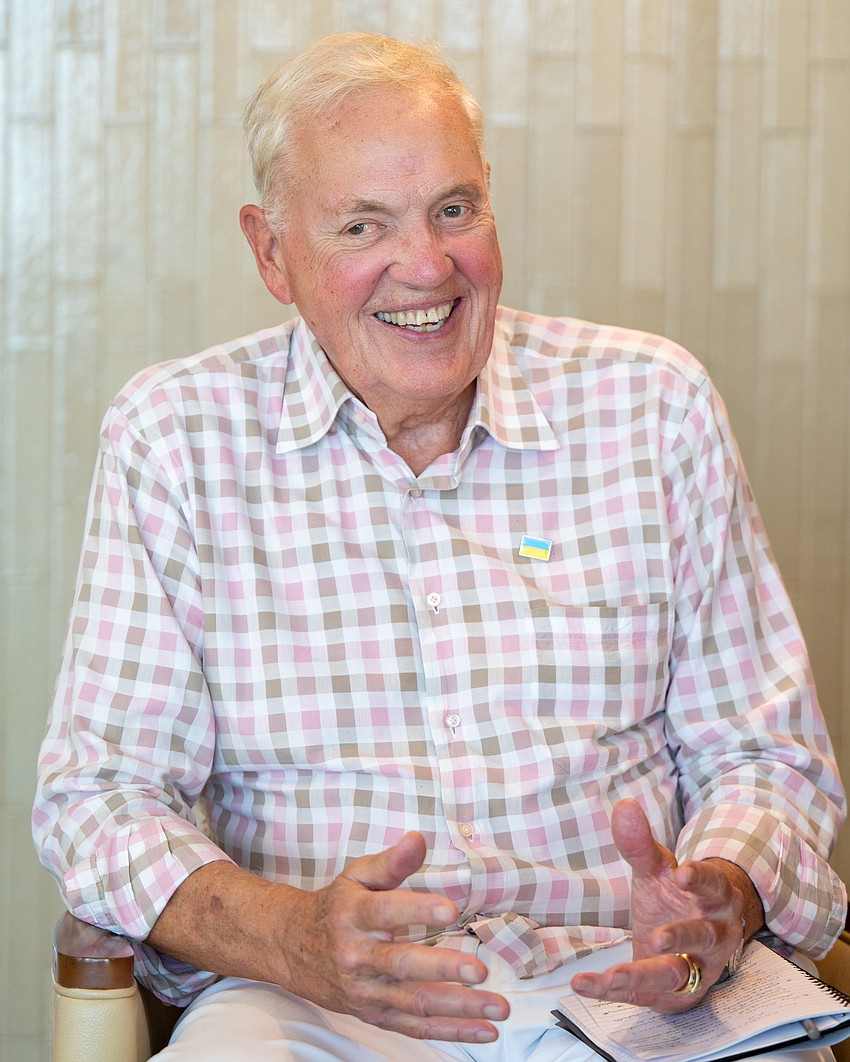
“This a much more progressive community than I expected,” he says, “with people attracted to nonprofits and backgrounds in the arts and culture. I’ve gotten to know people here who have seen the world.” On that count, Roy and Golden have already booked a two-month stay in Croatia next year.
Truby grew up outside Louisville, one of six children. His father was a factory worker with an eighth-grade education. Truby was the first in his family to go to college. “When I first got [to University of Kentucky] I wondered, ‘Why do they have two forks at the table?’” he says with a mischievous smile. He later earned a doctorate in educational administration from the University of Idaho.
Truby spent his career in the education field. He’s been the state school superintendent for Idaho and West Virginia. From 1989 to 2002, he lived in D.C. and was the executive director of the National Assessment Governing Board, which oversees the Nation’s Report Card.
Truby served his appointed position under two presidents, George H.W. Bush and Bill Clinton. These days, Truby volunteers at the Glasser/Schoenbaum Human Services Center. He’s a regular at Plymouth Harbor’s morning group fitness program. “They don’t treat us like old people,” he says. The couple’s move to Plymouth Harbor was driven by his wife. “She said, ‘It’s like a resort,’” Truby recounts. “I said, Yeah, but it’s the last resort.’”
It would appear that resort life suits him.
Doesn’t every upscale life plan community in an arts-savvy town need a retired opera singer?
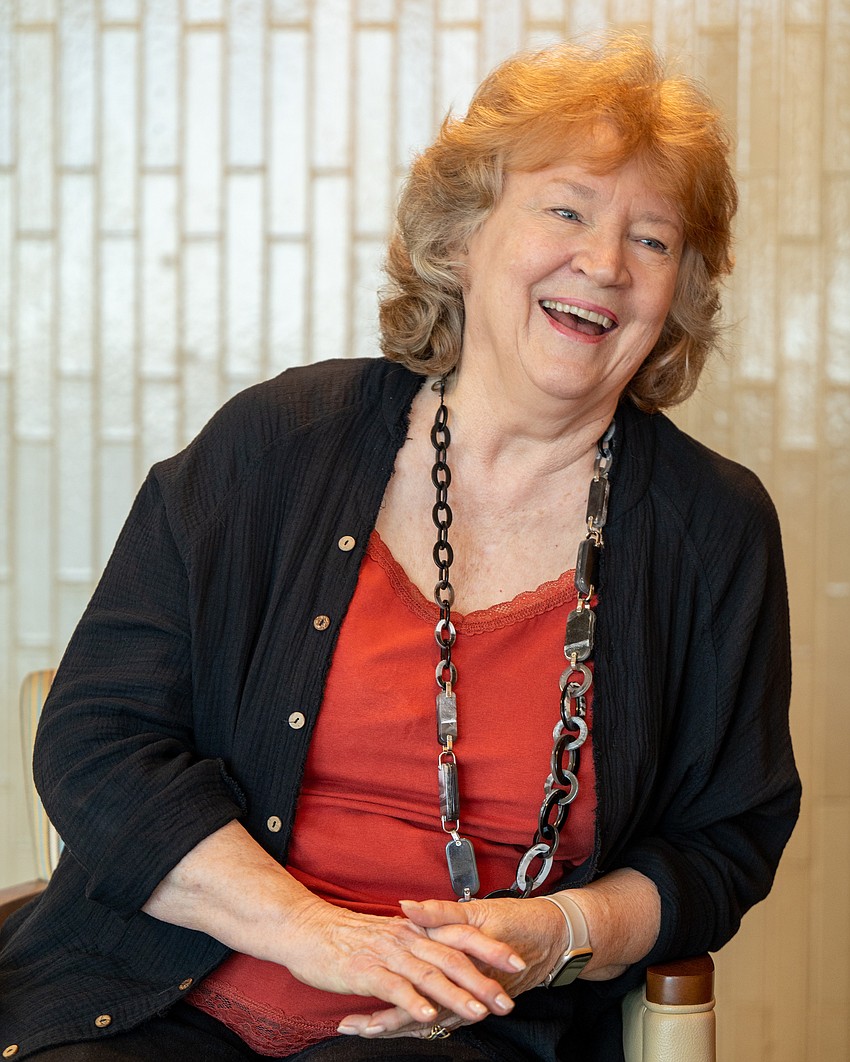
Perhaps not. But Plymouth Harbor happens to have one in Joy McIntyre. Residents don’t hear her belting out arias in the halls, however. She retired from performing 15 years ago and that was that. “I don’t even sing hymns in church anymore,” she says in a mellifluous voice with impeccable elocution that suggests she could easily burst into song if she had a mind to.
Asked why she no longer sings in public, McIntyre says, “Singing was my profession, for which I had certain standards to meet. It’s not an avocation.”
McIntyre, who is single, lives in a two-bedroom unit on the fourth flower of the tower. She’s been an avid volunteer in town for nearly 20 years, and currently serves on the boards of the Sarasota Music Archive, for which she gives lectures, and Sarasota Concert Association.
The Kansas native attended Oberlin College, where she studied music education and vocal performance, spending a year in Salzburg, Austria. After graduating, she earned a Master of Music at the New England Conservatory. McIntyre won a scholarship and returned to Salzburg, then spent the next two decades singing soprano for various opera companies and performing at opera houses throughout Europe. From there, she began a career in academia, teaching at Utah State University and Boston University, where she served as chair of their voice departments. She retired in 2002.
McIntyre lived in a house in Palmer Ranch for a dozen years. Her move to Plymouth Harbor largely resulted from getting tired of “driving up and down 41 twice a day, 40 or so miles to downtown,” she says. “I was on a bunch of boards and lecturing and had all kinds of activities, so it was much better to do it from here. And as a single person, the sense of community is ideal.”
Citing just one example of the benefits of living in Plymouth Harbor, she says, “You don’t have to worry about buying something for dinner. You just have to worry about making the deadline to get downstairs [to eat].”
Remarkably, Plymouth Harbor made it onto Sarah Pappas’ radar 40 years ago. “I was on a statewide humanities board and was talking with a woman who said she was on the waiting list at Plymouth Harbor,” she says. “From then on, I’ve always wanted to live here because I love the idea of communal living.”
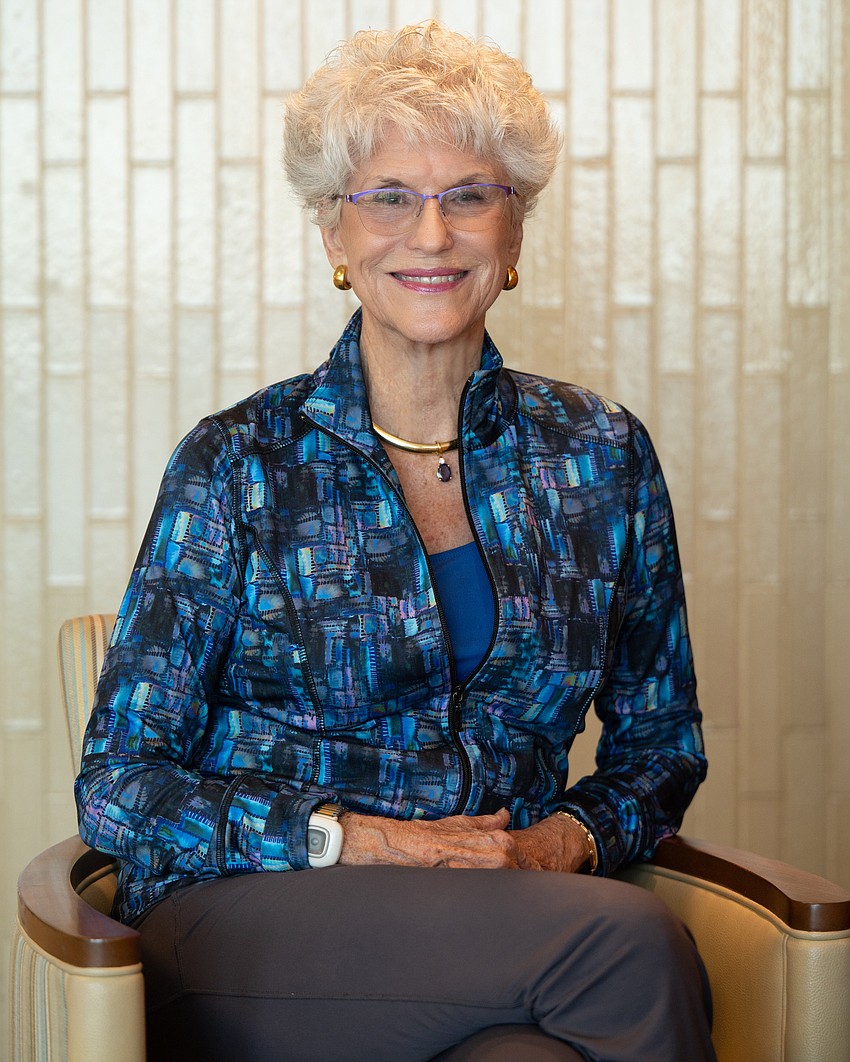
Want to get Pappas’ dander up? Start talking about Plymouth Harbor as an old folks home. “It’s a life plan community,” she says, leveling a stern glance. “When I told my friends at [age] 77 that I was coming here, you’d think I was going off to die.”
A 44-year educator, Pappas — who holds a doctorate degree from Nova Southeastern University — capped off her career with an 11-year tenure as president of what was then Manatee Community College (now State College of Florida, Manatee-Sarasota). After that, she served as president of the William G. and Marie Selby Foundation.
Pappas worked for a paycheck until she was 78 and “loved every minute.” These days, she directs her energies toward charitable pursuits. Pappas serves on The Ringling’s board of trustees. She supports the Innocence Project of Florida and is in the midst of a program where she’ll match, dollar-for-dollar, donations of up to $500,000. When we talked in November, she was winding down a term as past president of the Residents Association of Plymouth Harbor.
In 2017, Pappas moved into a brand new two-bedroom apartment in the Northwest Garden with her husband, artist and educator George Pappas. Eleven years her senior, he experienced cognitive decline and died of prostate cancer in 2021 at age 92. George ended his days in the skilled nursing unit under hospice care, never having left Plymouth Harbor. “I got to be with him all the time because he was right downstairs,” she says, then adds: “When I went back up to the apartment [after he died], I had four neighbors come and hug and kiss me and order pizza.”
But Pappas has good news. “I have a new boyfriend,” she says with a glint in her eye. “We don’t want to live together, but he wants to move here so we can be within walking distance of each other.”